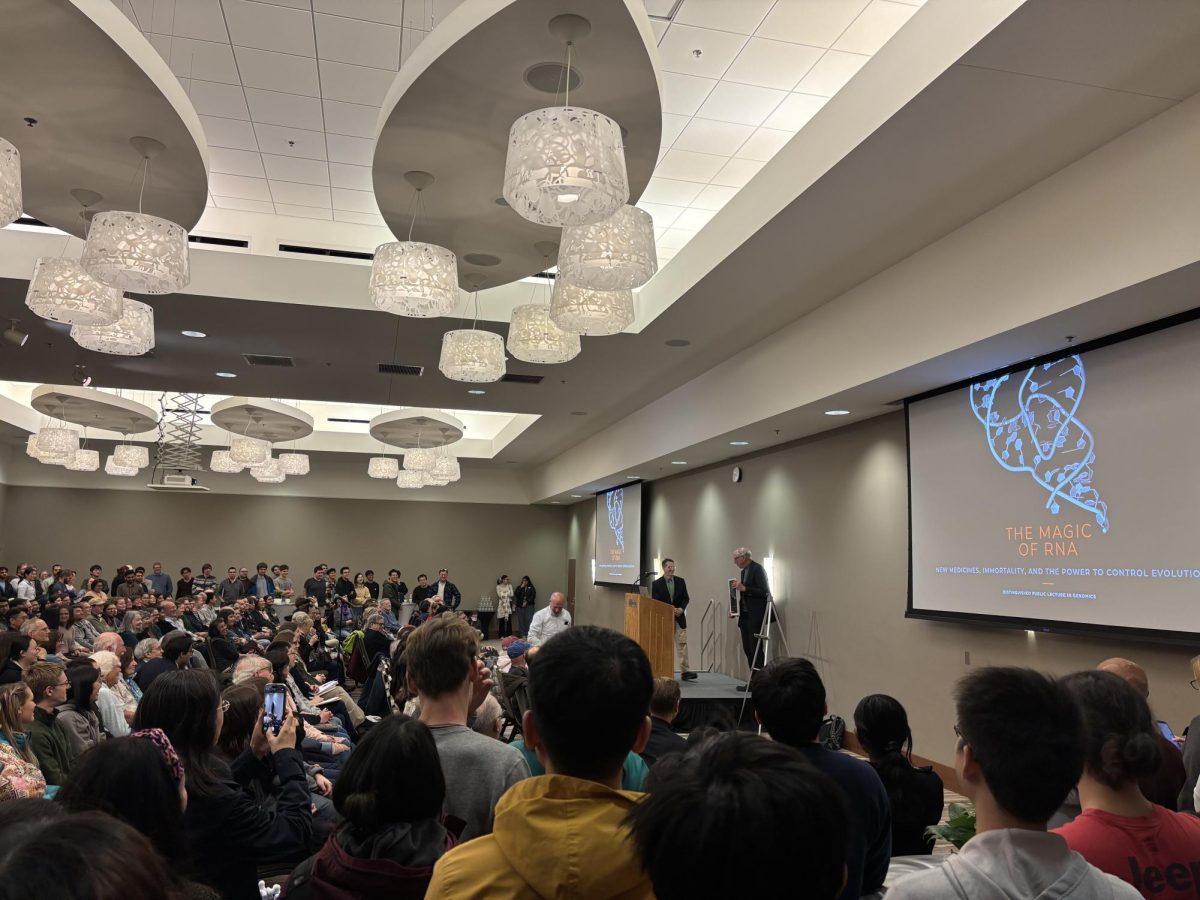Annoying small green insects have swarmed campus over the course of a week and will not be leaving any time soon, causing students and faculty to become anxious about finding a solution to the insect infestation.
According to a news release from the University of Illinois Extension, soybean aphids are small-bodied insects that may be winged or wingless and are more apparent during their migration from soybean fields to buckthorn fields.
“We have been caught in the middle of the soybean aphid migration from soybean fields as the seasons begin to change from summer to winter, and they search for places to lay their eggs for the winter,” the Extension’s release said.
It will be about a week or two before the aphids completely migrate, said Phil Nixon, Extension entomologist with the Department of Natural Resources and Environmental Sciences. After this week, there will likely be less aphids on campus.
“Although this migration occurs over a six-week period, heavy migration typically lasts for one to two weeks,” Nixon said. “Control efforts against these winged migrants are not practical, nor recommended.”
Get The Daily Illini in your inbox!
He said there are some aphid traps set up on south campus, but any form of extermination would be “a waste of time” because they are harmless to humans.
The grounds division of Facilities and Services is not doing anything to solve the insect problem, said Ron Brown, University grounds foreman.
Since there has not been much information about the sudden increase of insects on campus, building maintenance has not done anything either, said Tony Kelley, University water station foreman who works with pest control.
Student have said they are experiencing numerous problems with these swarms of aphids as they travel around campus.
“I missed class because I had to get them all off of my bike,” said Kelley Christensen, junior in LAS.
Her friend, Ellen Guirl, junior in LAS, said she agreed the aphid swarms have never appeared to be this bad in the past.
“I’ve never looked forward to cold weather more,” Guirl said in regards to winter marking the end of the aphid migration.






